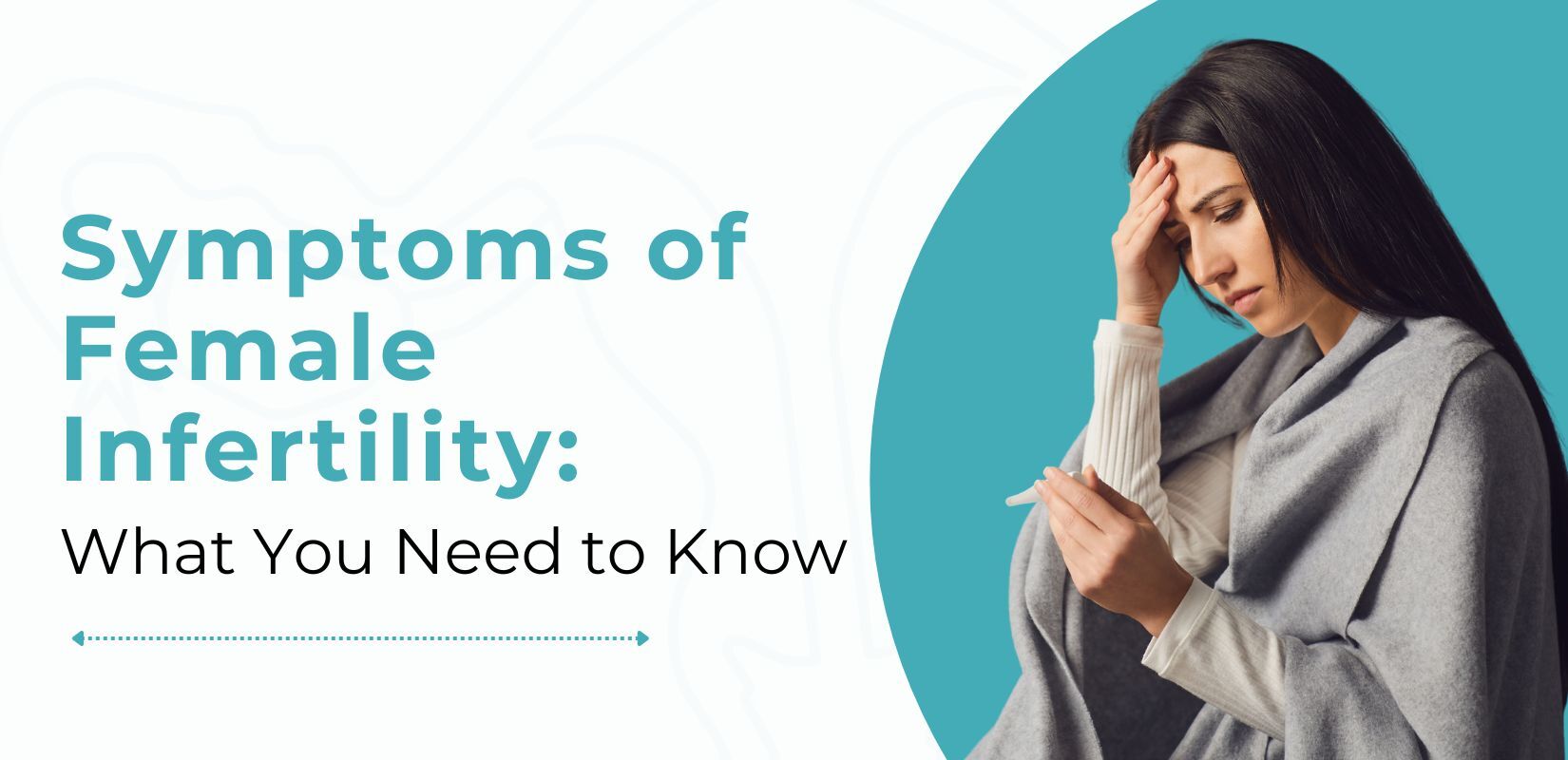
Infertility is a widespread issue that can affect couples around the world. It is defined as the inability to conceive naturally after a year of well-timed, unprotected sexual intercourse. While the primary symptom of infertility is the inability to conceive, there are several other symptoms that women may experience, which are often related to underlying conditions that can influence fertility. It's important to note that women who exhibit these symptoms may not necessarily face difficulty conceiving, while others who show no symptoms may still be infertile.
A regular menstrual cycle typically lasts between 28-30 days. However, slight variations of a few days are considered normal. On the other hand, inconsistent cycles or skipped periods can indicate an abnormality. A menstrual cycle that lasts less than 21 days or longer than 35 days is considered irregular. This irregularity can be caused by conditions such as polycystic ovarian syndrome (PCOS) or hormonal imbalances.
While it's common for women to experience mild cramps during their periods, severe pain that interferes with daily life should not be ignored. Additionally, unusually heavy blood flow can also be a cause for concern. These symptoms could be indicative of endometriosis, a condition where the tissue lining the uterus grows outside of it, often in the ovaries. Endometriosis can lead to pelvic scarring and anatomical distortions that can affect fertility.
Several hormones play a crucial role in fertility, including thyroid hormone, follicle-stimulating hormone, progesterone and luteinizing hormone, and prolactin. Imbalances in these hormones can disrupt the reproductive system and contribute to infertility. Symptoms of hormone imbalances may include acne, skin issues, the growth of facial hair, thinning hair on the scalp, unexplained weight gain or loss, and reduced sex drive.
Pain during sexual intercourse, also known as dyspareunia, is not normal and could be an indication of an underlying condition that affects fertility. Conditions such as endometriosis, fibroids, sexually transmitted diseases, pelvic inflammatory disease, or problems with the cervix and uterus can all contribute to painful intercourse. These conditions may increase the risk of infertility.
In terms of fertility, age plays a significant role. The quality and quantity of a woman's eggs decrease as she ages, making conception more challenging. Fertility declines after age 35. Women who are planning to have children should be aware of their biological clock and consult with a healthcare professional if they have concerns about their fertility.
Thyroid disorders can have a significant impact on fertility. Both an underactive thyroid (hypothyroidism) and an overactive thyroid (hyperthyroidism) can disrupt the menstrual cycle and affect ovulation. It is crucial for women experiencing fertility issues to have their thyroid function tested and seek appropriate treatment if necessary.
Obesity can have a detrimental effect on fertility. Obesity can disrupt hormonal balance and interfere with ovulation. Women who are overweight or obese may face difficulties conceiving and may require medical intervention to improve their chances of getting pregnant. A balanced diet and regular exercise can help you maintain a healthy weight.
Certain autoimmune disorders can impact fertility by affecting the reproductive organs or disrupting hormonal balance. Conditions such as lupus, rheumatoid arthritis, and Hashimoto's thyroiditis may increase the risk of infertility. Women with autoimmune disorders should work closely with their healthcare providers to manage their condition and address any fertility concerns.

Cancer and its treatments can have a profound impact on fertility. Some cancer treatments, such as chemotherapy and radiation therapy, can damage the reproductive organs and impair fertility. It's important for women diagnosed with cancer to discuss fertility preservation options with their healthcare team before starting treatment.
The adrenal glands play a role in hormone production, including those involved in fertility. Conditions that affect adrenal health, such as adrenal insufficiency or Cushing's syndrome, can disrupt hormone levels and impact fertility. Women experiencing symptoms related to adrenal dysfunction should consult with a healthcare professional for proper diagnosis and treatment.
In conclusion, infertility can have a variety of underlying causes. While the inability to conceive is the primary symptom, there are other symptoms that women may experience, indicating potential fertility issues. It is crucial for women who suspect they may be facing infertility to consult with a healthcare professional for proper diagnosis and guidance. With advancements in medical technology and treatment options, many couples can overcome infertility and fulfil their dreams of starting a family. at Juhi Fertility Center, we understand that infertility is a multifaceted concern with numerous potential factors. As the best fertility clinic in Hyderabad , we are committed to harnessing state-of-the-art medical technologies and treatment approaches, offering hope to countless couples in realizing their aspirations of parenthood.
Your email address will not be published. Required fields are marked *